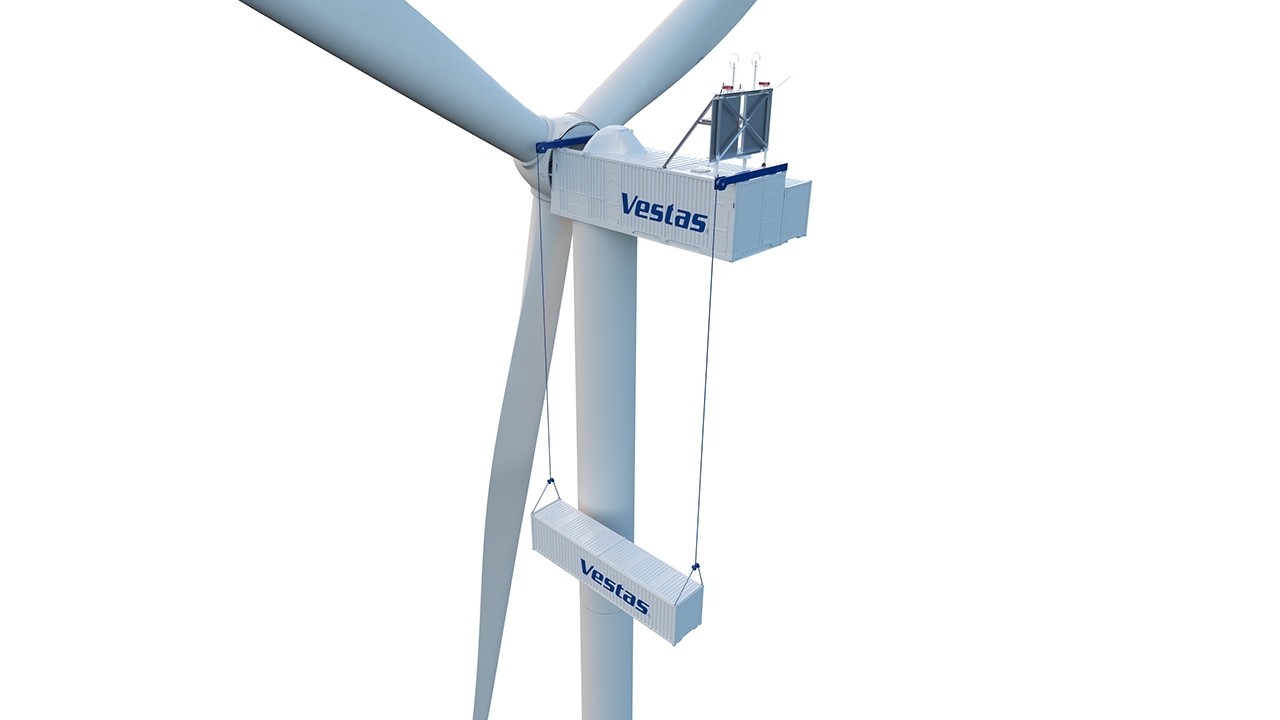UK Wind Energy Auction Reforms: Vestas Highlights Investment Threat

Table of Contents
Vestas' Concerns Regarding the New Auction System
Vestas, a global leader in wind turbine technology, has voiced significant apprehension regarding the reformed UK wind energy auction system. Their concerns stem from several key changes within the CfD allocation process:
-
Increased Risk and Uncertainty: The modified bidding process introduces greater risk and uncertainty for investors. The new rules make it harder to accurately predict the outcome and secure a return on investment, impacting project viability and making it a less attractive proposition for large-scale investments.
-
Reduced Returns on Investment: Vestas argues that the reforms could lead to significantly reduced returns on investment for wind energy projects. This reduced profitability discourages developers from committing capital to new projects, potentially hindering the expansion of the UK's renewable energy infrastructure. The shift in risk allocation within the CfD framework adds to this concern.
-
Impact on Long-Term Investment Planning: The uncertainty surrounding the reformed auction system makes long-term investment planning extremely challenging. Developers need a stable and predictable regulatory environment to commit to large-scale, long-term projects. The current ambiguity makes it difficult to secure financing and plan for the future.
-
Specific Changes in the CfD Allocation Process: While specifics vary, concerns center around changes impacting the strike price determination, the length of contracts, and the overall competitiveness of the bidding environment. These changes potentially disadvantage established players like Vestas, who have invested heavily in UK infrastructure and expertise.
-
Vestas' Future Commitment: Vestas has a long history of investment in the UK wind energy sector, contributing significantly to its growth and development. However, the current reforms threaten to undermine this commitment. The company’s continued involvement in the UK market hinges on a more stable and supportive regulatory framework. Without it, future investment is uncertain.
The changes affect the financial models underpinning wind energy projects, potentially pushing some projects below the threshold of profitability. This directly impacts the overall attractiveness of the UK market for international and domestic investment in wind energy infrastructure development. Vestas’ past investments in the UK, totaling [insert relevant statistics if available], highlight their significant contribution to the nation's renewable energy sector.
Impact on UK Renewable Energy Targets
The chilling effect of the reformed auction system on investment could significantly hamper the UK's ability to meet its ambitious renewable energy targets.
-
Potential Shortfall in Renewable Energy Capacity: Reduced investment directly translates to a potential shortfall in the addition of new renewable energy capacity. This could derail the UK's plans for a rapid transition to cleaner energy sources.
-
Implications for Net-Zero Targets: Failure to meet renewable energy targets will have serious implications for the UK's commitment to achieving net-zero carbon emissions by 2050. The shortfall in wind energy capacity will necessitate reliance on alternative, less sustainable energy sources.
-
Increased Reliance on Fossil Fuels: A lack of investment in wind power might lead to increased reliance on fossil fuels to meet energy demand, undermining the UK's energy security and potentially increasing carbon emissions.
-
Government Response: The government's response to concerns raised by Vestas and other industry players will be crucial. Clear communication and potentially revisiting certain aspects of the reform are essential to restoring investor confidence.
-
Alternative Policy Options: Alternative policy approaches, such as streamlined permitting processes, enhanced support for early-stage project development, or exploring different contract structures, could incentivize investment and ensure that the UK remains a leading force in renewable energy innovation.
The UK's current trajectory risks undermining its climate change commitments and jeopardizing its position as a global leader in the fight against climate change through renewable energy deployment. The potential consequences of insufficient renewable energy capacity expansion are far-reaching and could significantly impede progress towards a sustainable energy future.
The Wider Implications for the European Wind Energy Market
The uncertainty created by the UK's auction reforms extends beyond its borders, potentially impacting investor confidence across the European wind energy market.
-
Impact on Investor Confidence: The UK's experience could deter investment in other European countries, creating a ripple effect across the renewable energy sector. Investors might become hesitant to commit significant capital to projects in regions with potentially volatile regulatory environments.
-
Comparison with Other European Approaches: A comparison of the UK's approach with those of other European countries, such as [mention specific examples, e.g., Denmark, Germany], reveals alternative strategies that may be more effective in attracting private investment while supporting sustainable renewable energy growth. Identifying best practices is crucial for the continued development of the European renewable energy landscape.
-
Potential Domino Effect: The UK's situation might trigger a "domino effect," leading to decreased investment in renewable energy projects across Europe, impacting the entire sector’s development. This creates a challenging scenario for European Union targets for renewable energy expansion.
-
Broader Trends and Challenges: The UK's experience highlights broader trends and challenges within the European wind energy sector, such as the need for policy stability, streamlined permitting processes, and effective risk mitigation strategies.
The implications extend beyond the UK, posing a risk to the overall development of the European renewable energy market and highlighting the need for a coordinated and predictable policy landscape across the continent.
Conclusion
Vestas' concerns regarding the UK wind energy auction reforms highlight significant potential risks to investment, renewable energy targets, and the wider European market. The reforms' ambiguity and potential for reduced returns could stifle the growth of the UK's wind energy sector and compromise the nation’s commitment to achieving its net-zero targets. Addressing these concerns is paramount to ensuring the continued development of a sustainable energy future. Policymakers must review the auction system to create a stable and attractive investment environment, fostering the crucial investment needed to meet the UK's climate goals and maintain its global leadership in renewable energy. Understanding the intricacies of UK Wind Energy Auction Reforms is crucial for the future of sustainable energy. Learn more and get involved in shaping the future of renewable energy in the UK!

Featured Posts
-
 New Mission Impossible Standee A Cinema Con Exclusive
Apr 26, 2025
New Mission Impossible Standee A Cinema Con Exclusive
Apr 26, 2025 -
 The Nepo Baby Controversy Amanda Seyfrieds F Bomb Reaction
Apr 26, 2025
The Nepo Baby Controversy Amanda Seyfrieds F Bomb Reaction
Apr 26, 2025 -
 Espn Analyst Deepens Dive Into Deion Sanders Shedeur Sanders Draft Stock Theory
Apr 26, 2025
Espn Analyst Deepens Dive Into Deion Sanders Shedeur Sanders Draft Stock Theory
Apr 26, 2025 -
 Hues Dong Duong Hotel A New Addition To The Fusion Portfolio
Apr 26, 2025
Hues Dong Duong Hotel A New Addition To The Fusion Portfolio
Apr 26, 2025 -
 Russias Disinformation Campaign False Greenland News Fuels Denmark Us Tensions
Apr 26, 2025
Russias Disinformation Campaign False Greenland News Fuels Denmark Us Tensions
Apr 26, 2025
